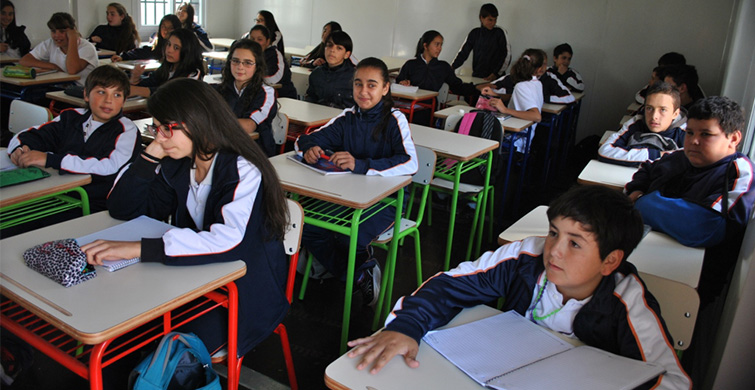This system is a policy, and with the support of the EUROsociAL+ Social Policies area at IILA, it has put the student, instead of the institutions, at the centre.

Image: Administración Nacional de Educación Pública (de Uruguay (ANEP)
Between 10 and 13 February, the technical advisory service of the expert Alberto Croce on the strategies for monitoring, accompaniment and educational reintegration within the framework of the support of the EUROsociAL+ EU programme for social cohesion for the strengthening of the Protection of Educational Trajectories of Uruguay was closed.
The documents were presented to the teams of the Sectoral Directorate for Educational Integration, to Directors of the National Administration of Public Education and in an extended session of the National Education Board (CODICEN).
The support itinerary consisted of an exchange with the educational policy of the province of Santa Fe (Argentina), the presence of experts Flavia Terigi and Alberto Croce in instances of training of technical teams and the specialised advisory service of the latter. From the visit to the Vuelvo a Estudiar [I go back to studying] Plan (Santa Fe) regarding the training of teachers and teams to give educational continuity and completion of cycles for students who had broken away from formal education, the mixed attendance/remote comprehensive training course was designed, in which 200 teachers took part.
The support of EUROsociAL+ in the systematisation of the policy of the Educational Trajectories Protection System allows the complexity and scope of this educational policy to be visualised, which has involved educational players from all over the country and from all the ANEP subsystems. At the same time, it includes practices in the territory and at the central level, analyses the critical knots that have hindered some progress, and makes recommendations. It is also an instrument in itself for the systematisation of policies that will be useful from the methodological point of view for other experiences. It makes a problem of and allows us to reflect on the complexity and importance of the extension of educational time, as well as its relevance in students’ lives.
In the words of Ana Verocai, ANEP Director of Educational Integration, “it allowed us not only to learn and question this policy for its development, but also to size it as a whole and to appreciate it as one of the few that combines theory and practice and allows the educational players to walk with the same purpose: to accompany the students in their formal or non-formal educational trajectory, protecting it to make it continuous and complete”.
The accompaniment of the students’ educational trajectories is one of the main challenges that all countries have today regarding the guarantee of the right to education, especially in the most critical stage of pre-adolescence and adolescence.
Finally, it should be noted that the Educational Trajectories Protection System is a policy, not a programme. It expresses the Uruguayan will to commit, get involved and take this subject on board from different areas; it passes from the centrality of management to territoriality and dialogue and puts the student, instead of the institutions, at the centre.



